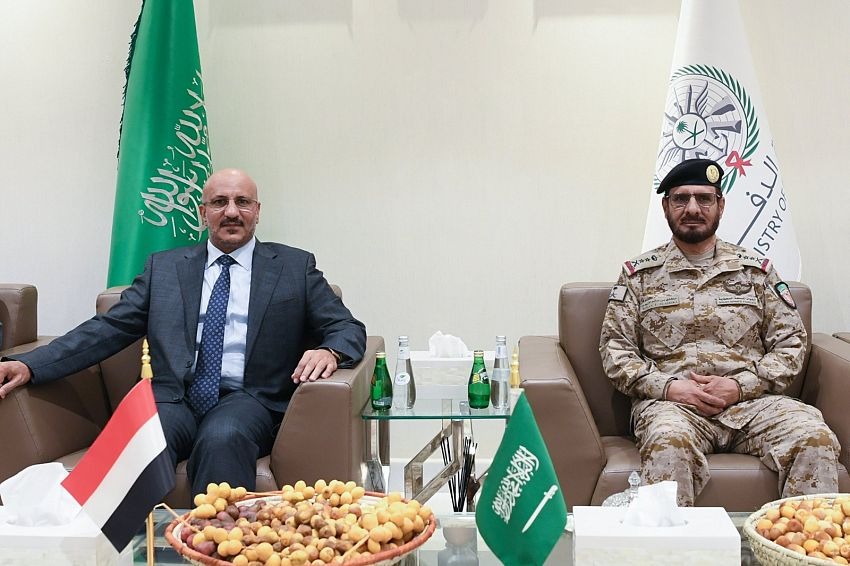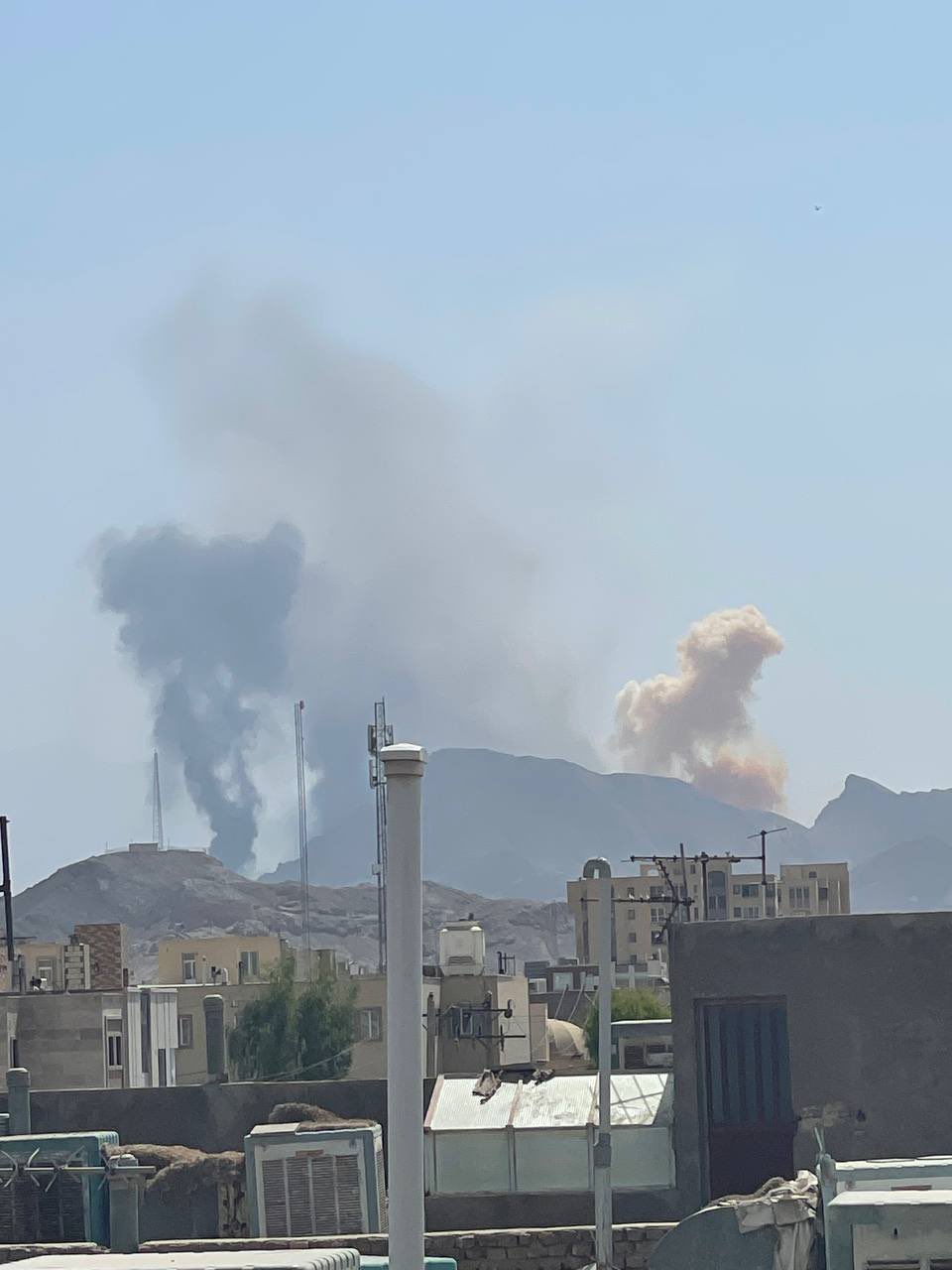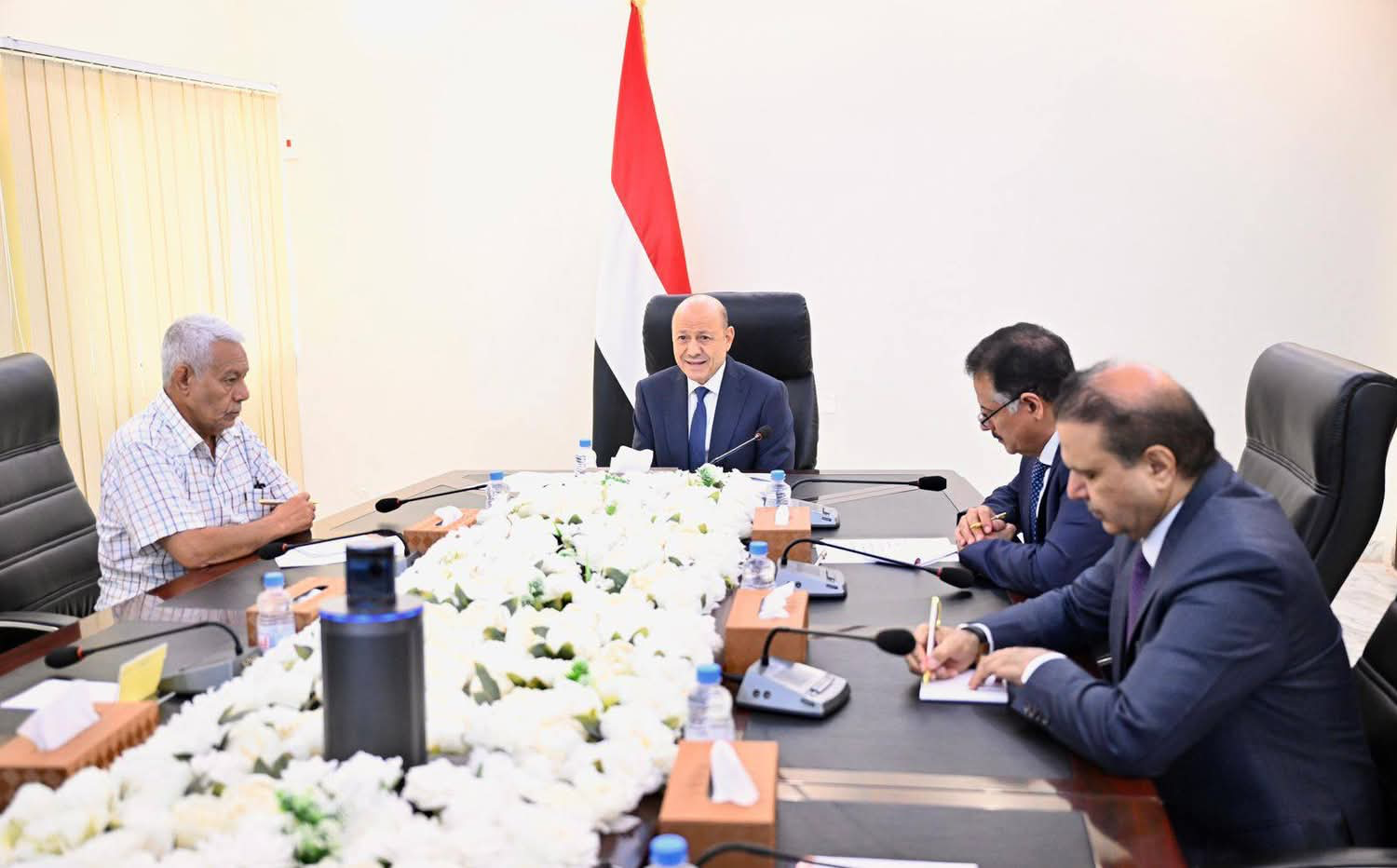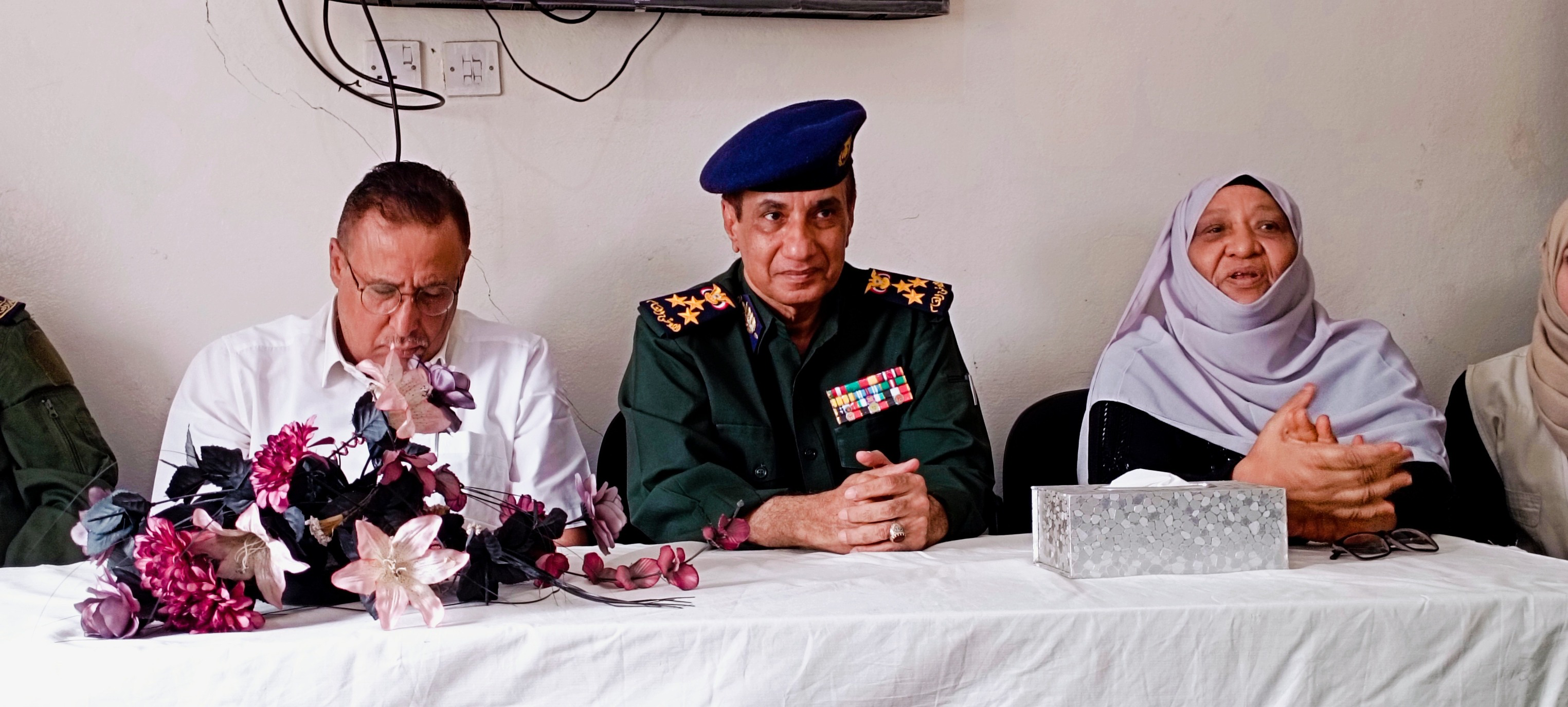
Barran Press
Tariq Saleh, the member of the Presidential Leadership Council and commander of the National Resistance Forces, met with the commander of the joint forces of the Arab Coalition, Saudi Deputy Chief of Staff General Mutlaq al-Azima', on Monday to discuss coordination efforts in supporting the Yemeni government.
Saleh, according to the official Yemeni news agency Saba, praised Saudi Arabia's support for the Yemeni people in their national struggle to restore their state and their commitment to achieving peace.
Al-Azima', in turn, emphasized the commitment of the coalition countries led by Saudi Arabia to "the overall situation, continuous coordination, and ongoing support to achieve the desired goals and aspirations of the Yemeni people and their legitimate leadership, as well as security and stability in Yemen."
The meeting between the Presidential Leadership Council member and the Saudi military commander comes just days after the UN envoy announced that Yemeni parties had reached an agreement on a "de-escalation" in Yemen, highlighting the crucial role played by Saudi Arabia in brokering the agreement.
Last Tuesday, the office of the UN envoy to Yemen stated that the internationally recognized Yemeni government and the Houthi group, designated as a terrorist organization by several countries, had agreed on several measures to de-escalate the situation, particularly regarding the banking sector and Yemeni Airways.
The agreement, according to a statement from the envoy's office, includes:
- Revoking recent decisions and measures against banks by both sides and refraining from any similar decisions or measures in the future.
- Resumption of Yemeni Airways flights between Sana'a and Jordan, increasing the number of flights to three daily, and operating daily flights to Cairo and India, or as needed.
- Holding meetings to address administrative, technical, and financial challenges facing the company.
- Initiating meetings to discuss all economic and humanitarian issues based on a roadmap.
The envoy, Hans Grundberg, highlighted the crucial role played by Saudi Arabia in reaching this agreement. He affirmed the UN's readiness to work with both parties to implement the agreed-upon measures. He also offered to facilitate communication with authorities in Jordan, Egypt, and India.
Last December, the UN announced that Yemeni parties had reached understandings to commit to a set of measures, including implementing a nationwide ceasefire, taking steps to improve living conditions in Yemen, and engaging in preparations to resume a comprehensive political process under UN auspices.
The roadmap and peace efforts in Yemen were stalled by attacks launched by the Houthi group against commercial cargo ships in the Red Sea, the Arabian Sea, and the Gulf of Aden since last November.





